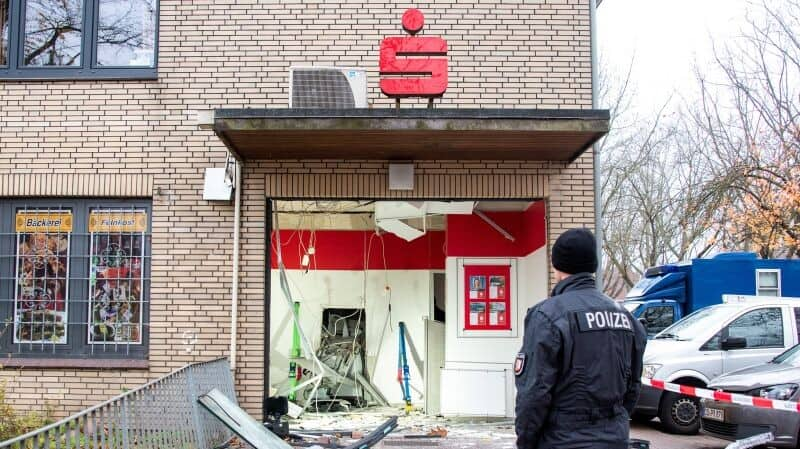
What are ATM bombings; why Germany is a prime target
What's the story
Germany, Europe's largest economy, is battling a wave of ATM bombings. The country has seen over one such incident daily in recent years.
The attacks are mostly conducted by organized criminal groups who consider ATMs an easier, less conspicuous target than banks.
In one such incident on March 23, 2023, criminals blew up an ATM in Kronberg town center using explosives, causing massive damage, stealing €130,000 in cash.
Cash culture
ATM bombings: A lucrative crime in cash-reliant Germany
The dominance of cash as a go-to payment option in Germany makes these thefts extremely lucrative. The criminals can walk away with hundreds of thousands of euros in a single attack.
Half of all transactions in 2023 were made with banknotes and coins, according to the Bundesbank, emphasizing the country's dependence on physical currency.
This cultural inclination toward cash has, unknowingly, made Germany a target for such crimes.
Law enforcement
Europol's efforts to curb cross-border ATM bombings
Europol, EU's law enforcement agency, has been working actively to curb these robberies, carrying out large-scale operations across borders.
In a recent operation involving German, French, and Dutch authorities, three members of a criminal network were arrested.
They are suspected of carrying out ATM attacks with explosives since 2022 and have allegedly looted millions of euros while causing significant property damage.
Modus operandi
Criminal network's tactics and hideouts revealed
The criminal network used French locations as hideouts and rented getaway cars from a French company.
Europol reports that these criminals mainly use solid explosives, often derived from fireworks, to blow up the cash-filled machines.
The dangerous method causes extensive damage. In 2023 alone, ATM lootings in Germany caused €28.4 million worth of secondary damage according to BKA (Germany's Federal Criminal Police Office).
Public danger
Serious threats to residents and buildings
The gangs committing these crimes usually target ATMs located in quieter, residential areas.
Europol warns this tactic poses a major risk to buildings and residents as the attacks can bring down building facades and scatter shards of glass.
In some cases, these incidents have even turned fatal.
On November 11, an ATM robbery in Wiernsheim ended tragically with a high-speed chase head-on colliding with a van, leaving one dead and severely injuring another.
Target appeal
Germany's extensive ATM network and cash culture attract criminals
Germany's vast network of more than 51,000 ATMs and its cash-heavy culture have made it a prime target for these crimes.
"This extensive network has, in part, drawn organized criminal groups from abroad seeing the density of ATMs and Germany's demand for cash access as factors in their favor," a spokesperson for the German Banking Industry Committee told CNN.
To tackle this, German banks have spent over €300 million on improved security measures like alarm systems and reinforced locking mechanisms.